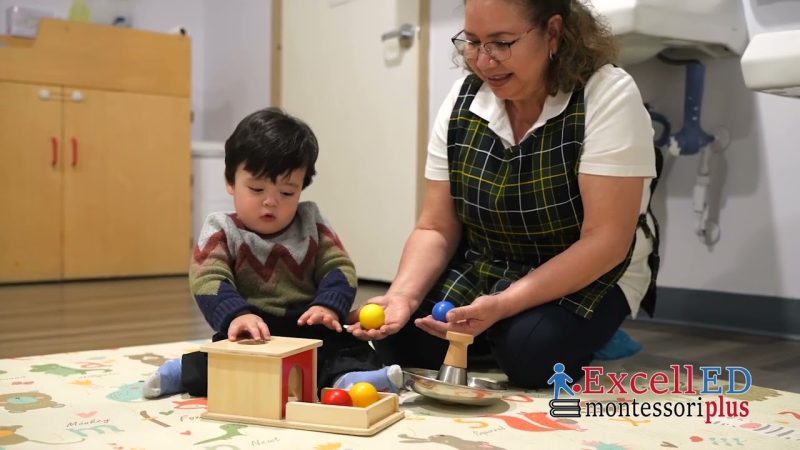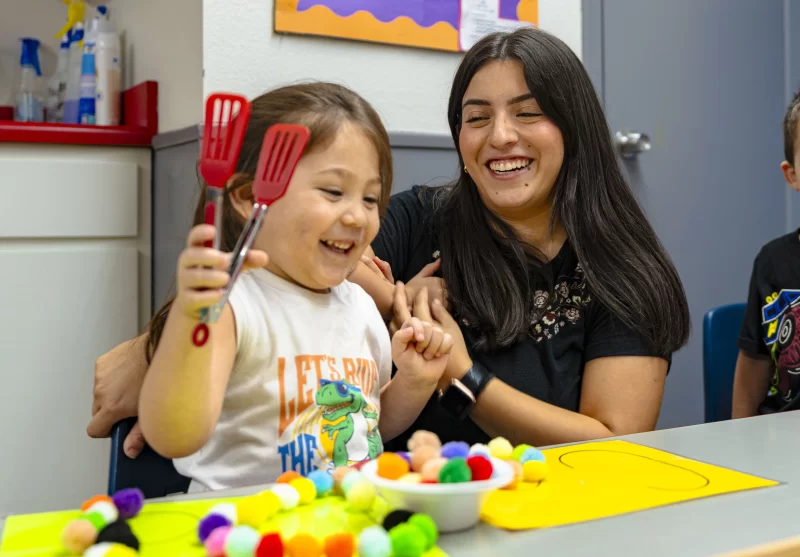Routines and schedules are very important in early childhood education. At Excelled Montessori, we believe that having a consistent daily routine helps create a safe, caring, and effective learning environment for young children.
Why Routines and Schedules Matter
- Creates Security and Predictability: Children feel safe when they know what to expect. Predictability helps them feel secure and in control of their world, which is important for their emotional well-being.
- Fosters Independence: Regular routines help children learn self-discipline and independence. When children know what happens next, they can start to manage their own time and tasks, making them feel capable and confident.
- Supports Learning and Growth: Structured routines give children many chances to learn and practice new skills. Consistent schedules help children build on their experiences, which supports their learning and growth.
- Reduces Behavioral Issues: A well-structured day with clear expectations helps reduce anxiety and behavior problems. When children know what is expected and what comes next, they are more likely to engage positively in activities and transitions.
Implementing Effective Routines and Schedules
At Excelled Montessori, we design our daily routines and schedules to support each child’s overall development. Here’s how we structure our day:
- Morning Routine
- Arrival and Welcome: Children are greeted warmly, helping them transition smoothly from home to school.
- Circle Time: A group activity that sets the tone for the day, including songs, stories, and discussions.
- Work Periods
- Montessori Work Cycle: Children engage in self-directed learning activities, choosing tasks that interest them while teachers provide guidance and support.
- Snack Time: A short break for a nutritious snack, fostering social interaction and healthy eating habits.
- Outdoor Play
- Physical Activity: Children have ample time for outdoor play, essential for their physical development and social skills.
- Nature Exploration: Activities that connect children with nature, promoting environmental awareness and appreciation.
- Lunch and Rest Time
- Lunch: A relaxed, social mealtime where children practice good manners and enjoy nutritious meals.
- Rest: Quiet time for relaxation or napping, allowing children to recharge for the afternoon.
- Afternoon Routine
- Afternoon Work Cycle: Continuation of self-directed learning with additional opportunities for creative expression and exploration.
- Group Activities: Collaborative projects and games that build social skills and teamwork.
- End-of-Day Routine
- Reflection and Closing Circle: A time for children to reflect on their day, share experiences, and prepare for the transition home.
- Dismissal: Children are dismissed individually, ensuring a smooth and safe departure.

Adapting Routines for Individual Needs
While consistency is key, flexibility is also important. At Excelled Montessori, we know that each child is unique, and we tailor our routines to meet individual needs. By observing and understanding each child’s rhythms and preferences, we can adjust activities and schedules to provide personalized support and encouragement.
Implementing Routines at Home
Creating and maintaining routines at home can greatly benefit your child’s development and well-being. Here are some tips for establishing effective routines at home:
- Consistency is Key: Try to keep daily routines consistent. For example, have regular times for waking up, meals, play, and bedtime. This helps your child know what to expect and feel secure.
- Involve Your Child: Involve your child in creating the routine. Let them have a say in some of the activities or the order in which they happen. This can make them more invested and cooperative.
- Create a Visual Schedule: Use pictures and charts to create a visual schedule that your child can easily understand. This is especially helpful for younger children who cannot read yet.
- Be Flexible: While consistency is important, be flexible when needed. Sometimes routines need to be adjusted due to unforeseen circumstances. Explain the changes to your child to help them adapt.
- Include Fun and Relaxation:
- Ensure that the routine includes time for fun and relaxation. Balance structured activities with free play and quiet time.
- Model the Routine: Children learn by watching adults. Model the routine yourself by following it and showing the importance of sticking to a schedule.
The Importance of Routines and Schedules During Summer
Summer can be a time of disruption for many families, as school routines are put on hold. However, maintaining a routine during summer is just as important, if not more so, for the following reasons:
- Provides Stability: With the absence of the school schedule, a consistent summer routine helps provide stability and structure, preventing children from feeling lost or restless.
- Prevents Regression: Keeping a routine helps prevent regression in skills and behaviors that children have developed during the school year. Regular reading, learning activities, and chores can keep their minds engaged.
- Balances Fun and Learning: A summer routine can balance fun activities with learning opportunities. Scheduling time for outdoor play, family trips, and educational activities ensures a well-rounded experience.
- Eases Transition Back to School: Maintaining a routine during summer makes the transition back to school in the fall smoother. Children who have kept a consistent schedule are more likely to adapt easily to the school routine.
Conclusion
Routines and schedules are not just about managing time; they are about creating an environment where children feel safe, supported, and ready to learn. At Excelled Montessori, our well-planned routines and schedules are a key part of our educational approach, helping children build a strong foundation for lifelong learning and success.
By implementing similar routines at home, you can reinforce the structure and stability your child experiences at school, further supporting their growth and development.

Subscribe to Newsletter
Programs offered at ExcellED Montessori Plus include:
✔️Infants (10 Weeks – 18 Months)
✔️Toddlers (18 – 36 Months)
✔️Primary (3-6 Years)
✔️Kindergarten
✔️Mother’s Day Out
✔️Spanish Immersion / Dual Language
✔️After School Programs and Summer Camp (6 – 12 Years)
Music, Spanish, and Yoga are other programs included as part of the tuition.
Learn more about Inquiry-based Learning






